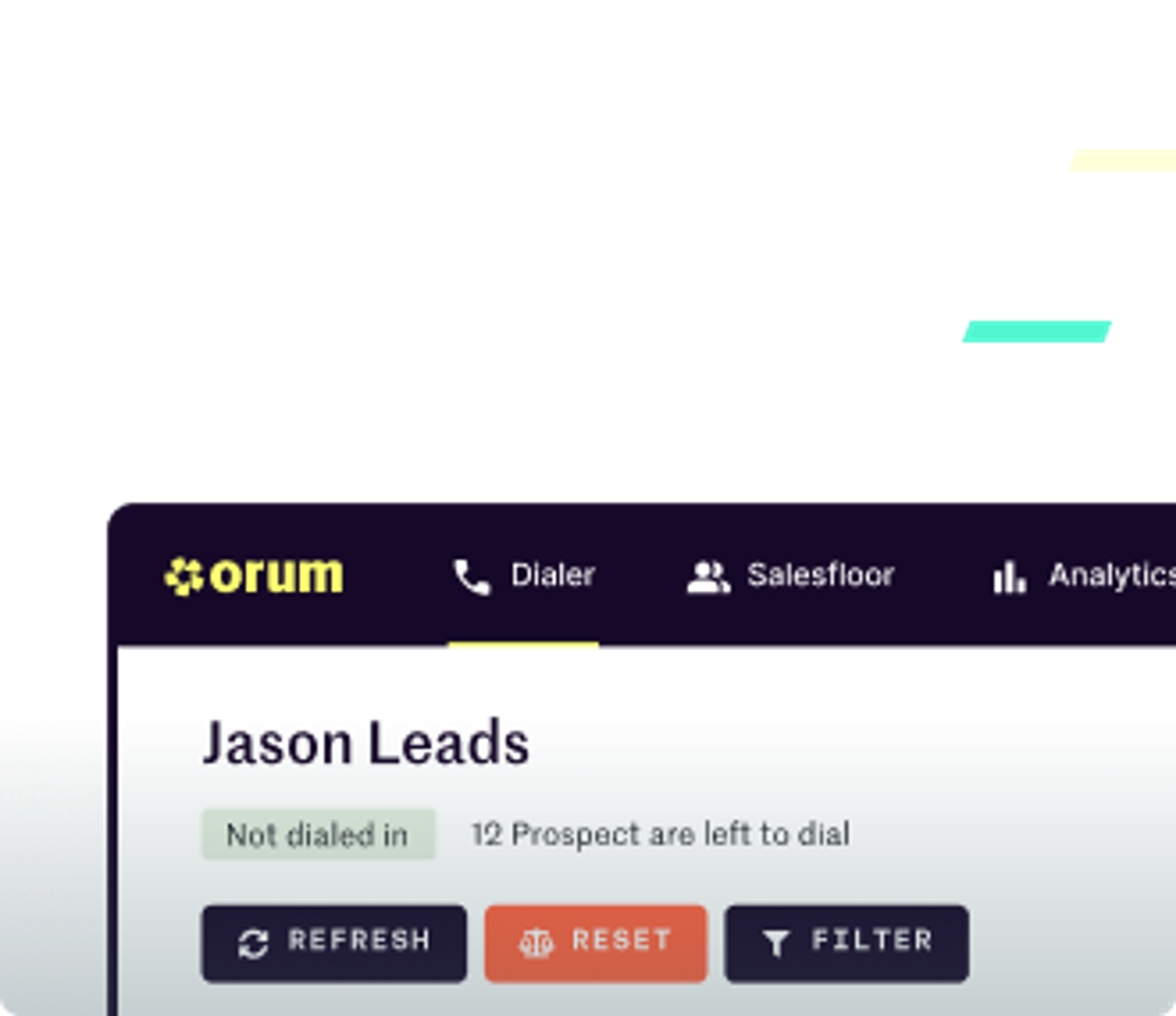Overcoming Objections–Hot Tips for Mastering Cold Calling


Recently, Orum partnered with Modern Sales Pro on a webinar featuring Aaron Melamed, Orum Enterprise Account Executive, to delve into the six categories of call objections. Aaron has far surpassed his “10,000 hours” when it comes to cold calling and, in this webinar, he shares his experience with the best objection handling techniques that will help generate more positive call dispositions, longer discussions, and, most critically, more meetings.
The greatest tool available to your sales development teams is more reps on the phone so they can be better prepared to handle objections, schedule more meetings, and build revenue pipeline. In order to properly address those objections, however, they need to understand what they are.
These are the category breakdowns Aaron offered and how he would best respond to them.
The six categories of call objections
Brush offs
Every SDR has heard these standard classics:
- I’m busy or I’m running into a meeting.
- “Send me the information and I’ll look at it later”
- I’m just not interested”
No one likes to be caught off guard and it’s a natural reaction to look for a quick way to end the call. For objections like these, Aaron offered a base response that can be adjusted depending on the situation:
”I know I caught you cold here - do you mind if I briefly explained a little about what we do and you can let me know if it’s worth it to follow up?”
This honest approach humanizes SDRs and meets prospects on their level.
Authority
“I’m not the decision maker” is a response every rep has heard before. It’s a reality of the prospecting process that most of the people you’ll speak with genuinely won’t be able to decide if they add your product. That doesn’t mean you’re blocked from proceeding.
For these types of objections, Aaron continues to meet prospects where they’re at. “I understand and, truthfully, I don't need you to be the decision maker–the reality is that multiple stakeholders will be involved, and I think you're a great person to start with.”
Bandwidth
We’ve all been told the classic, “We’re using other tools at the moment.” These are opportunities to do some market research while also building a rapport down the road as opposed to seeing this as a dead end.
Aaron suggests responding by saying, “Oh that's great–what tools are you implementing? When do you think is a good time to follow up?” This lets you learn a bit about the tools they’re using and opens the door for a follow up discussion. When building out your follow up call, be sure to understand the differentiators between your products and the tools they’re using. Speaking of differentiators…
Competition
Inevitably, your reps are going to call organizations that are using tools offered by your competitors. In fact, many will argue that SDRs aren’t fully doing their jobs if they aren’t calling these companies. In these calls, it’s vital to understand key differences that you can list out.
This is something that takes a great deal of reps to get comfortable with, which is why AI-powered live conversation platforms like Orum are vital to the success of your sales teams. The more conversations your reps can have, the better they are at authentically explaining what differentiates your product from the competition.
Surprise
Now and again, you can genuinely catch someone off guard. Perhaps they are waiting on another call or thought you were someone else. In these instances, Aaron suggests it’s best to playfully apologize for disappointing them before asking for thirty seconds of their time to explain what you do.
You can then follow up by saying you’d love to tell them more when time allows before working to get some time on their calendar.
Price
If the prospect states that they don’t have budget for any additional tools, the best option is to ask if they have a minute to hear how you’ve helped a similar organization achieve their business goals so that, when the time comes, you can continue the conversation.
ROI is always going to be the key driver towards adding a product or service to an organization’s tech stack, but it’s especially important when budgets are tight. By discussing the success of others on your platform, you’re creating FOMO and planting the seed for future conversations.
The top cold call objections
After breaking down the six main categories of objections, Aaron then went into detail about specific objections and offered several examples about how to counter them. He also expressed the importance of tonality and how your team can best practice handling objections together.
To dive deeper into these topics as well as hear his best call opener suggestions, and his thoughts on how to leave voicemails that get responses, be sure to check out the on-demand version of the webinar below.





